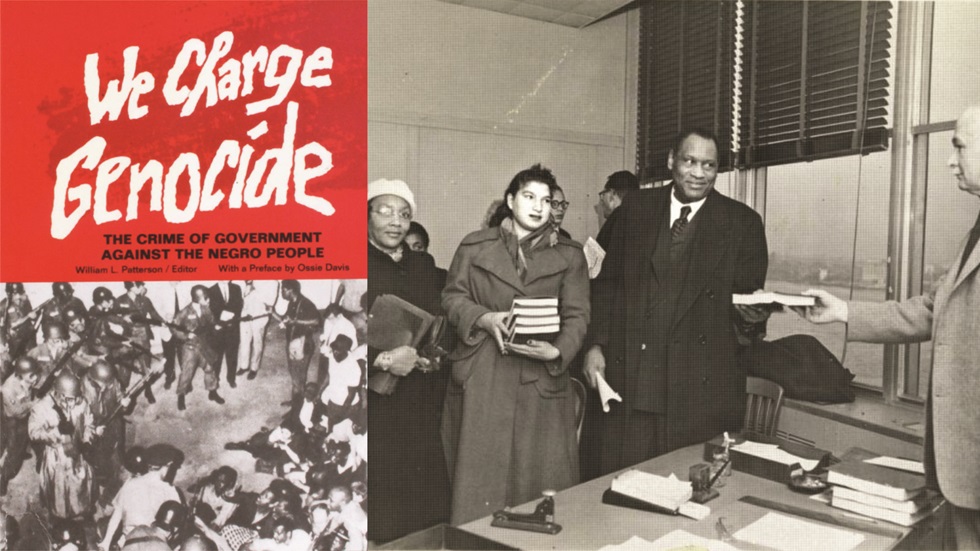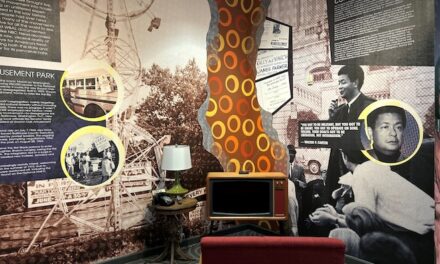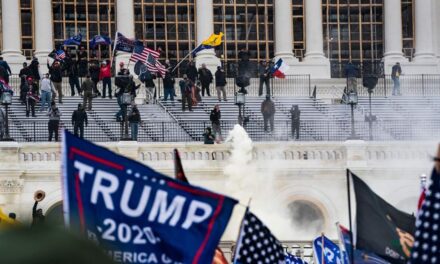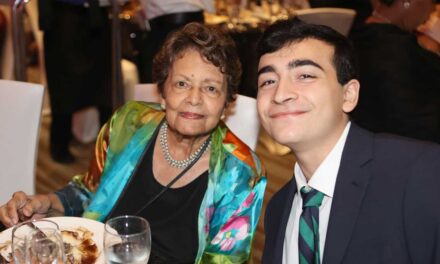

William L. Patterson, executive director of the Civil Rights Congress, addressing the Bill of Rights Conference, circa 1940s. | Schomburg Center for Research in Black Culture, Photographs and Prints Division, The New York Public Library
This article is part of the People’s World 100th Anniversary Series.
Presented to the United Nations in December 1951 by William L. Patterson in Paris and Paul Robeson in New York, the “We Charge Genocide” petition—We Charge Genocide: The Crime of Government Against the Negro People by its full name—documented page after page of evidence of the inhuman and racist practices of the United States. It was produced by Patterson’s organization, the Civil Rights Congress, and asked for international action to halt what was happening to Black Americans.
Assembled on the eve of the mass Civil Rights Movement’s emergence in the U.S., We Charge Genocide detailed the innumerable beatings, frame-ups, arrests, lynchings, and police murders of Black Americans that were the hallmarks of the Jim Crow era.
“Out of the inhuman Black ghettos of American cities, out of the cotton plantations of the South,” the introduction began, “comes this record of mass slayings on the basis of race, of lives deliberately warped and distorted by the willful creation of conditions making for premature death, poverty, and disease.”
Among the signatories who added their name to the petition were eminent African American historian and freedom fighter Dr. W.E.B. DuBois; George Crockett Jr., later a distinguished judge in Detroit who went on to serve many terms in the U.S. Congress; New York City Communist councilman Benjamin J. Davis, Jr.; Ferdinand Smith, Black leader of the National Maritime Union; Dr. Oakley C. Johnson of Louisiana; Aubrey Grossman, the labor and civil rights lawyer; and Claudia Jones, a Communist leader in Harlem later deported during the witch-hunts of the Red Scare.
Also signing were family members of the victims of “legal lynching”: Rosalee McGee, mother of Willie McGee, framed up on rape charges, and Josephine Grayson, whose husband, Francis Grayson, was one of the Martinsville Seven, framed and executed on false rape charges in Virginia.
Just as the petitioners were preparing to deliver their document to the U.N., the administration of President Harry S. Truman rushed to print thousands of copies of a propaganda piece called “The Negro in American Life,” which claimed that—contrary to the story told in We Charge Genocide, life was actually great for Black people in the United States.
In this article by Daily Worker reporter John Pittman from Dec. 17, 1951, the Truman White House’s distraction and distortion schemes are exposed.
 ‘We Charge Genocide’ may be heard by U.N.
‘We Charge Genocide’ may be heard by U.N.
By John Pittman
Daily Worker – Dec. 17, 1951
Recent developments at Paris, where the sixth Assembly of the United Nations is in session, provide a basis for belief that “We Charge Genocide,” the most recent petition of the Negro people of the United States, will escape the fate of its predecessors. Three other petitions from the Negro people have been pigeonholed into oblivion, owing especially to the efforts of Mrs. Eleanor Roosevelt.
They were the petitions submitted on behalf of the Negro people by the National Negro Congress (1946), the National Association for the Advancement of Colored People (1947), and a committee in defense of Mrs. Rosa Lee Ingram, the Negro mother who is serving a life sentence in a Georgia prison for having killed a white farmer attempting to rape her (1949).
These three petitions were never able to get a hearing in the court of world opinion. Mrs. Roosevelt allowed herself to become the instrument with which the Truman administration suppressed them. Instead of fighting for a hearing of the charges, she defended the Jim Crow system.
The same tactics are again being employed by the Truman administration against “We Charge Genocide.” No sooner had this petition come off the press than the State Department prompted a number of fascist renegades and refugees from eastern Europe to yell “Genocide!” against the Soviet Union and People’s Democracies.
Anticipating the publication of “We Charge Genocide,” the State Department rushed into print a pamphlet called “The Negro in American Life” for translation into many languages and wide distribution overseas. It is significant that Washington views its pamphlet frankly as a piece of propaganda.
According to the New York Times‘ Anthony Leviero, whose series of articles from Washington on the “war of ideas between the USA and the USSR” reveals a good deal of the thinking and acting of official Washington, “The Negro in American Life” was prepared on demand of many State Department field workers. Its preparation took seven months, and, according to Leviero (N.Y. Times 12-14-51), it received the approval of Walter White, head of the NAACP.
 A delegation led by Paul Robeson presents a copy of the ‘We Charge Genocide’ petition to the United Nations Secretariat in New York on Dec. 17, 1951. | Daily Worker / People’s World Archives
A delegation led by Paul Robeson presents a copy of the ‘We Charge Genocide’ petition to the United Nations Secretariat in New York on Dec. 17, 1951. | Daily Worker / People’s World Archives
This State Department pamphlet, as might be expected, is a grandiose defense of Jim Crow. Its principal technique for giving a lying version of the conditions of the Negro people is to pick out rare and unusual instances of Negroes in positions of first-class citizenship and to represent these as typical of all Negroes. In addition, it entirely glosses over the actual statistics of income, living conditions, imprisonment, and all the offenses against Negroes described and enumerated in “We Charge Genocide.”
It is as flagrant an attempt to conceal the truth from the world as the outright denial of a passport to Paul Robeson, who was authorized to present “We Charge Genocide” to the United Nations.
Despite these tricks by the Truman administration, however, “We Charge Genocide” is being circulated among the delegates to the U.N. And although Messrs. Ralph Bunche (Director of the U.N. Division of Trusteeship) and Channing Tobias (Alternate Rep. of the United States) are ducking like scared rabbits whenever they encounter a copy, there is a good chance that the peoples of the world may have the opportunity of hearing and judging the charges.
This is so because there is growing sentiment amongst the world’s peoples to call the Truman delegation to account on all its demagogic lip service to peace and democracy and human rights.
The continued rebuffs given the South African Malan regime [then in the process of establishing apartheid – Ed.], Wall Street’s protege; the growing insistence on the rights of peoples in so-called “non-self-governing territories” to speak for themselves and be heard by the United Nations; the increasing impatience at Washington’s continued obstruction of peace efforts; the rebukes handed the Truman delegation last week over their support of French imperialism’s permanent war against the people of Morocco—all these and other reflections of a rising rebellion against Washington’s white supremacist dollar arrogance hold encouragement that the Negro people, at long last, will be heard.
> ORDER A COPY of We Charge Genocide from International Publishers.
> LEARN about the life of the petition’s author, William L. Patterson.
> AND READ the story of this historic event from the People’s World archives.




